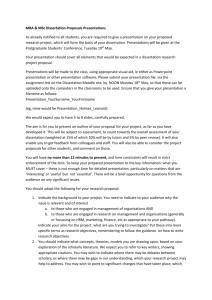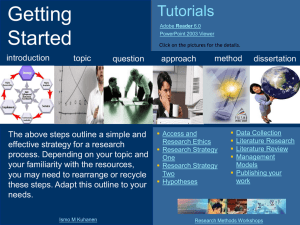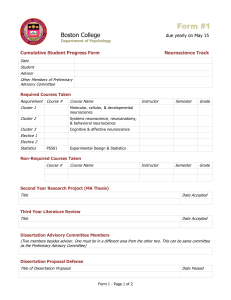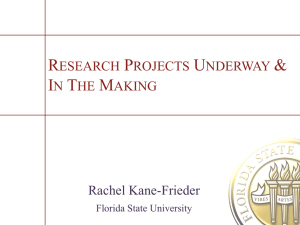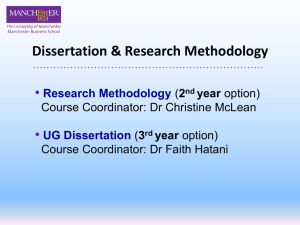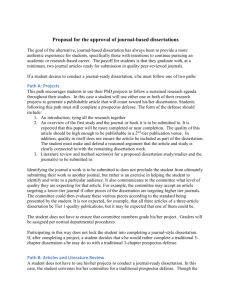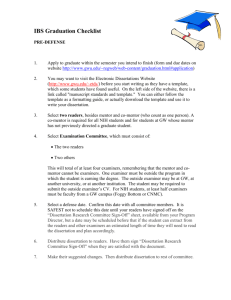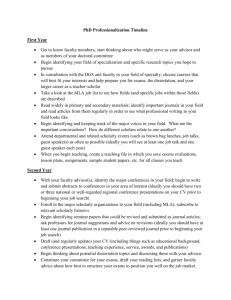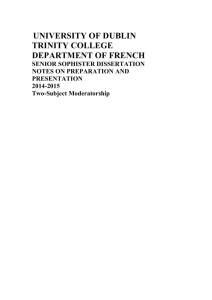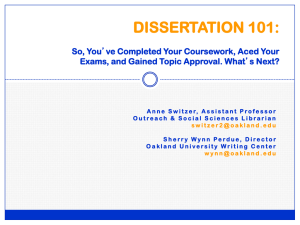Choosing your Dissertation Committee
advertisement
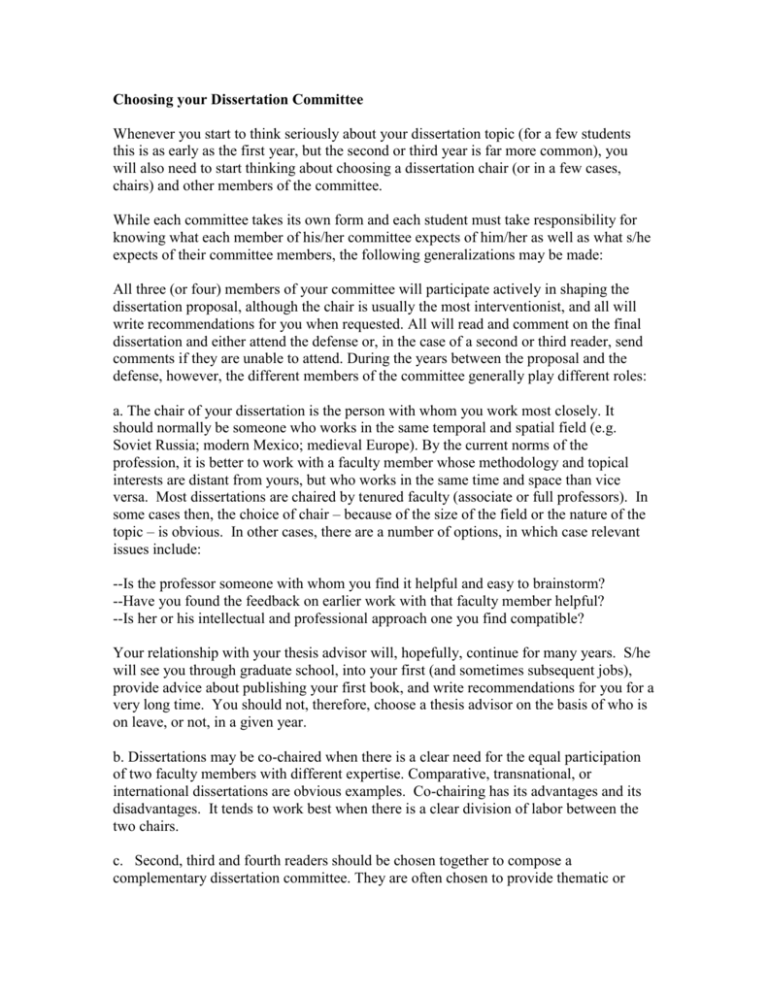
Choosing your Dissertation Committee Whenever you start to think seriously about your dissertation topic (for a few students this is as early as the first year, but the second or third year is far more common), you will also need to start thinking about choosing a dissertation chair (or in a few cases, chairs) and other members of the committee. While each committee takes its own form and each student must take responsibility for knowing what each member of his/her committee expects of him/her as well as what s/he expects of their committee members, the following generalizations may be made: All three (or four) members of your committee will participate actively in shaping the dissertation proposal, although the chair is usually the most interventionist, and all will write recommendations for you when requested. All will read and comment on the final dissertation and either attend the defense or, in the case of a second or third reader, send comments if they are unable to attend. During the years between the proposal and the defense, however, the different members of the committee generally play different roles: a. The chair of your dissertation is the person with whom you work most closely. It should normally be someone who works in the same temporal and spatial field (e.g. Soviet Russia; modern Mexico; medieval Europe). By the current norms of the profession, it is better to work with a faculty member whose methodology and topical interests are distant from yours, but who works in the same time and space than vice versa. Most dissertations are chaired by tenured faculty (associate or full professors). In some cases then, the choice of chair – because of the size of the field or the nature of the topic – is obvious. In other cases, there are a number of options, in which case relevant issues include: --Is the professor someone with whom you find it helpful and easy to brainstorm? --Have you found the feedback on earlier work with that faculty member helpful? --Is her or his intellectual and professional approach one you find compatible? Your relationship with your thesis advisor will, hopefully, continue for many years. S/he will see you through graduate school, into your first (and sometimes subsequent jobs), provide advice about publishing your first book, and write recommendations for you for a very long time. You should not, therefore, choose a thesis advisor on the basis of who is on leave, or not, in a given year. b. Dissertations may be co-chaired when there is a clear need for the equal participation of two faculty members with different expertise. Comparative, transnational, or international dissertations are obvious examples. Co-chairing has its advantages and its disadvantages. It tends to work best when there is a clear division of labor between the two chairs. c. Second, third and fourth readers should be chosen together to compose a complementary dissertation committee. They are often chosen to provide thematic or methodological expertise. Or they may be faculty with whom you have a good “brainstorming” relationship, or who you find to be particularly good readers. One or more may be from another department within the University for from another University (it is important to note that if you choose a reader from outside, the University does not have the funds to bring them to campus for your proposal hearing or defense). The 2nd, 3rd (and 4th) readers should, in any case, be chosen in consultation with the chair of the dissertation committee. Second, third, and fourth readers are not generally as involved as the first in the everyday progress of the dissertation. Second readers often read the dissertation only in penultimate draft, often reading sets of chapters along the way, more rarely reading chapter by chapter, although they may do so if particularly expert in the topic. Third and fourth readers often read only the completed dissertation before the defense, although they are available for consultation throughout the process and may be more closely involved in sections or issues in which they have particular expertise.

